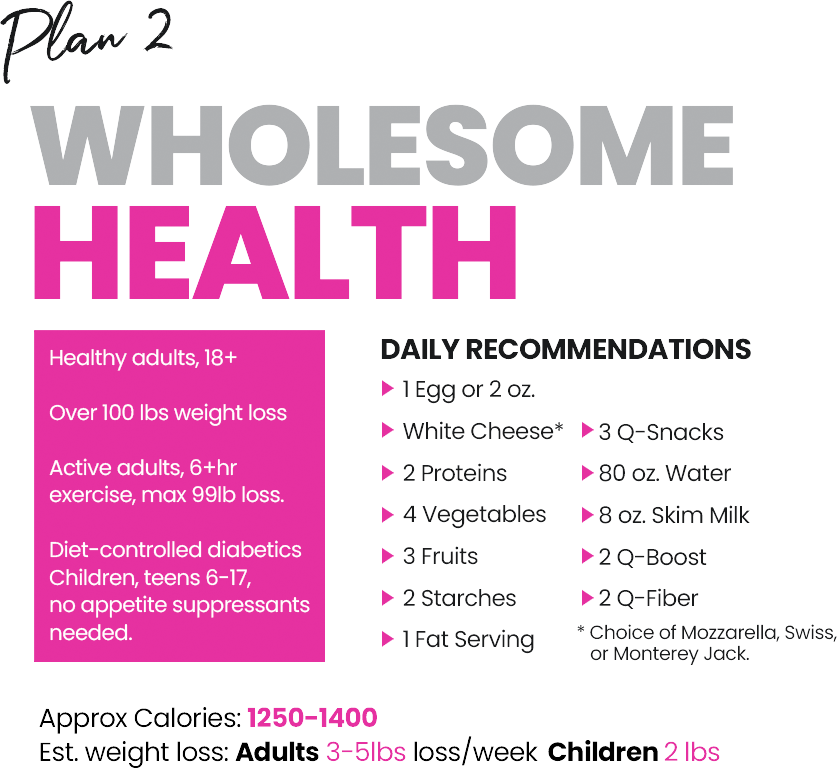Understanding Rockford’s Health Landscape: Quick And Healthy Weight Loss Plans For Rockford Residents
Rockford, like many other urban areas, faces significant health challenges, particularly concerning weight management. Obesity rates contribute to a higher incidence of chronic diseases, impacting the overall well-being of residents. Several factors contribute to this complex issue.
Prevalent Weight-Related Health Challenges in Rockford

High rates of obesity and overweight individuals in Rockford lead to increased risks of type 2 diabetes, heart disease, stroke, certain types of cancer, and osteoarthritis. These conditions place a significant strain on the healthcare system and reduce the quality of life for affected residents. Data from the Winnebago County Health Department and the Illinois Department of Public Health could provide specific statistics on prevalence.
Barriers to Healthy Weight Loss in Rockford
Access to affordable and nutritious food is a major challenge. Many Rockford residents live in food deserts, areas with limited access to grocery stores offering fresh produce and healthy options. Socioeconomic factors, including poverty and lack of access to transportation, further exacerbate this issue. Additionally, a lack of awareness about healthy eating habits and the availability of resources for weight management also plays a role.
Rockford’s Health Infrastructure
Rockford boasts a range of health resources, including numerous gyms, fitness centers, and community centers offering exercise classes. Several clinics and hospitals provide weight management services, though access may vary depending on insurance coverage and location. The availability of community gardens and farmers’ markets can also support access to fresh produce. However, the distribution of these resources may not be equitable across all neighborhoods.
Successful Weight Loss Programs in Similar Communities
Communities facing similar challenges have seen success with comprehensive programs that combine nutritional education, physical activity initiatives, and community-based support systems. Examples include programs focusing on improving access to healthy food options, promoting physical activity through community events, and providing culturally sensitive health education. Successful models often involve partnerships between healthcare providers, community organizations, and local government.
Quick & Healthy Weight Loss Strategies
Effective and sustainable weight loss involves a holistic approach encompassing diet, exercise, and mental well-being. Small, consistent changes are more effective than drastic measures. Prioritizing whole, unprocessed foods, regular physical activity, and stress management are key components.
Three Quick Weight Loss Strategies for Rockford Residents
- Prioritizing Whole Foods: Focus on incorporating more fruits, vegetables, lean proteins, and whole grains into your diet. Reduce consumption of processed foods, sugary drinks, and unhealthy fats. Shop at local farmers’ markets for fresh, seasonal produce.
- Incorporating Mindful Eating: Pay attention to hunger and fullness cues. Eat slowly, savor your food, and avoid distractions while eating. This helps prevent overeating.
- Increasing Physical Activity Gradually: Start with small, achievable goals, such as walking for 30 minutes most days of the week. Gradually increase the intensity and duration of your workouts as you get fitter.
Comparing Dietary Approaches

Intermittent fasting involves cycling between periods of eating and voluntary fasting. The Mediterranean diet emphasizes fruits, vegetables, whole grains, legumes, and healthy fats. Both can be effective, but individual responses vary. Intermittent fasting requires careful planning and may not be suitable for everyone. The Mediterranean diet is generally easier to adapt to long-term.
Sample Weekly Meal Plan with Locally Sourced Produce
| Day | Breakfast | Lunch | Dinner |
|---|---|---|---|
| Monday | Oatmeal with berries and nuts | Salad with grilled chicken or chickpeas | Salmon with roasted vegetables |
| Tuesday | Yogurt with fruit and granola | Leftover salmon and vegetables | Lentil soup with whole-wheat bread |
| Wednesday | Scrambled eggs with spinach and whole-wheat toast | Turkey and avocado sandwich on whole-wheat bread | Chicken stir-fry with brown rice |
| Thursday | Smoothie with fruits and vegetables | Leftover chicken stir-fry | Vegetarian chili with cornbread |
| Friday | Breakfast burrito with eggs, beans, and salsa | Salad with grilled tofu | Pasta with marinara sauce and vegetables |
| Saturday | Pancakes made with whole-wheat flour and topped with fruit | Leftover pasta | Pizza with whole-wheat crust and lots of vegetables |
| Sunday | French toast made with whole-wheat bread | Leftover pizza | Roast chicken with potatoes and carrots |
Incorporating Exercise into a Rockford Lifestyle
Regular physical activity is crucial for weight loss and overall health. It boosts metabolism, burns calories, and improves cardiovascular health. Combining cardio and strength training yields optimal results.
Accessible and Affordable Exercise Options in Rockford
Rockford offers many affordable exercise options. Numerous parks and walking trails provide opportunities for outdoor activities. Community centers often offer affordable fitness classes. Many residents find that walking or cycling to work or errands are easy ways to increase their activity levels.
Sample Weekly Workout Schedule for Beginners
- Monday: 30-minute brisk walk or jog
- Tuesday: 30-minute strength training (bodyweight exercises)
- Wednesday: Rest or light stretching
- Thursday: 30-minute brisk walk or jog
- Friday: 30-minute strength training (bodyweight exercises)
- Saturday: Longer walk or bike ride (60-90 minutes)
- Sunday: Rest or light activity (yoga, stretching)
Importance of Strength Training and Cardio
Cardiovascular exercises improve heart health and burn calories. Strength training builds muscle mass, which increases metabolism and helps burn more calories even at rest. A balanced approach is essential for optimal weight loss and overall fitness.
Addressing Mental and Emotional Well-being
Mental health plays a significant role in weight management. Stress and emotional eating can hinder progress. Addressing these factors is essential for sustainable weight loss.
Connection Between Mental Health and Weight Management
Stress often leads to increased cortisol levels, which can promote weight gain. Emotional eating, using food to cope with negative emotions, can also lead to weight gain. Addressing underlying mental health concerns can significantly improve weight loss outcomes.
Strategies for Managing Stress and Emotional Eating, Quick and healthy weight loss plans for Rockford residents
Stress management techniques such as mindfulness meditation, deep breathing exercises, and yoga can help regulate cortisol levels and reduce emotional eating. Identifying triggers for emotional eating and developing healthier coping mechanisms are also crucial.
Resources for Mental and Emotional Well-being in Rockford
Rockford offers various resources for mental health support, including counseling services, support groups, and community mental health centers. These resources can provide guidance and support in managing stress, emotional eating, and other mental health concerns.
Self-Care Plan Incorporating Mindfulness
A self-care plan could include daily mindfulness meditation (even 5-10 minutes), regular yoga or stretching, spending time in nature, and engaging in hobbies that promote relaxation and stress reduction. Prioritizing sleep is also crucial for mental and physical well-being.
Maintaining Long-Term Weight Loss Success
Sustaining weight loss requires commitment and a long-term perspective. Realistic goals and strategies for overcoming plateaus are crucial for success.
Setting Realistic Goals and Expectations
Setting achievable goals, such as losing 1-2 pounds per week, is more sustainable than aiming for rapid weight loss. Focusing on lifestyle changes rather than solely on the number on the scale is also important.
Overcoming Weight Loss Plateaus
Plateaus are common. Strategies include adjusting diet and exercise routines, increasing intensity or duration of workouts, ensuring adequate sleep, and managing stress levels. Consulting a healthcare professional or registered dietitian can provide personalized guidance.
Strategies for Maintaining a Healthy Lifestyle Long-Term
Long-term success involves making sustainable lifestyle changes. This includes maintaining a balanced diet, regular exercise, stress management, and adequate sleep. Building a strong support system and seeking professional guidance when needed are also important.
Challenges in Maintaining Weight Loss and Strategies to Overcome Them
- Challenge: Holiday gatherings and social events. Strategy: Plan ahead, make healthy choices, and don’t deprive yourself completely.
- Challenge: Stressful life events. Strategy: Practice stress management techniques, seek support from friends and family, or consider professional help.
- Challenge: Lack of motivation. Strategy: Set realistic goals, find an exercise buddy, and reward yourself for progress.
- Challenge: Time constraints. Strategy: Schedule workouts in advance, find short, effective workouts, and incorporate activity into your daily routine.
Visual Guide: Healthy Rockford Recipes
These recipes utilize readily available ingredients in Rockford.
Healthy and Quick Rockford Recipes

| Recipe Name | Ingredients | Instructions | Nutritional Information (approximate) |
|---|---|---|---|
| Berry Spinach Salad with Lemon Vinaigrette | Mixed greens, fresh berries (strawberries, blueberries), spinach, grilled chicken or chickpeas, lemon juice, olive oil, honey | Combine greens, berries, and protein. Whisk together lemon juice, olive oil, and honey for dressing. Drizzle over salad. | Calories: 350-450, Protein: 25-35g, Fat: 15-20g |
| Lentil Soup with Local Vegetables | Lentils, carrots, celery, onion, vegetable broth, spices (cumin, turmeric) | Sauté vegetables, add lentils and broth, simmer until lentils are tender. Season with spices. | Calories: 200-250, Protein: 15-20g, Fat: 5-10g |
| Baked Chicken with Roasted Root Vegetables | Chicken breasts, sweet potatoes, carrots, parsnips, olive oil, herbs (rosemary, thyme) | Toss vegetables with olive oil and herbs. Bake alongside chicken breasts until cooked through. | Calories: 400-500, Protein: 40-50g, Fat: 20-25g |
Balanced Plate Illustration
Imagine a plate divided into four sections. One half is filled with non-starchy vegetables (e.g., broccoli, peppers, spinach), taking up approximately 50% of the plate. One quarter is filled with lean protein (e.g., chicken breast, fish, beans), approximately 25%. The remaining quarter is filled with whole grains (e.g., brown rice, quinoa, whole-wheat bread), also approximately 25%. A small amount of healthy fats (e.g., avocado, nuts, olive oil) can be incorporated throughout the meal.


